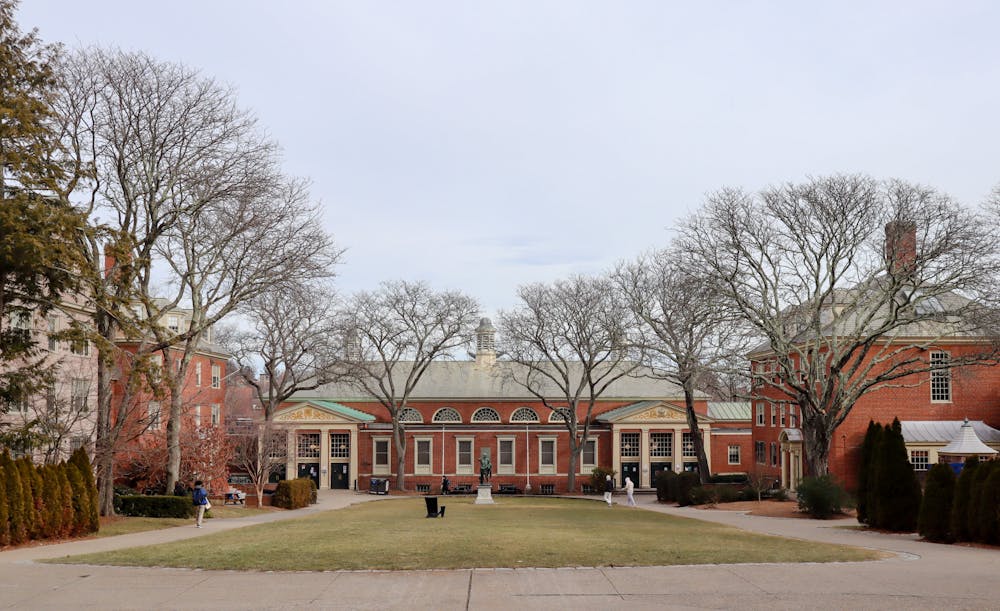The Division of Campus Life announced staffing changes to three on-campus identity centers — the Global Brown Center for International Students, the Undocumented, First-Generation College and Low-Income Student Center and the Office of Military-Affiliated Students — in a March 30 news release.
Both the GBC and U-FLi Center are expected to add additional staff members to their roster in the coming months, as Campus Life is in the “final stages of the recruitment process,” Loc Truong, assistant vice president for Campus Life engagement, wrote in an email to The Herald.
“By the start of summer, we will have a full staff in all of the identity centers,” Truong wrote.
The centers also plan to launch a collaborative speaker series to “promote the academic mission of the University by engaging students with scholars, activists and researchers on important and current issues,” according to the announcement.
The expansion of the three identity centers was motivated by a need among students that identify with these groups for help with “navigating the college experience,” according to the announcement. Campus Life also saw a demand for specialized spaces where these students are able to interact with peers.
“Each center serves its students by approaching their college experience through a unique lens,” the announcement reads.
‘Thinking critically about international and global issues’: Global Brown Center
Andrew Heald, former GBC program director, has been promoted to center director and will be joined by Ruby Cheng, who will serve as assistant director. A new program coordinator is expected to be hired soon.
GBC “builds internationally-identified communities” on campus while also “challenging” University faculty and staff to “perpetuate inclusivity by thinking critically about international and global issues,” according to the announcement.
Expansions to GBC come in the wake of increased student participation in the center’s International Mentoring Program — which hosts International Orientation and provides incoming international students with yearlong peer mentorship. In recent years, IMP has seen a nearly 25% increase in participation.
Going forward, GBC plans to find ways to better support international graduate students by developing a more robust orientation program, social and community support and resource navigation, according to the announcement.
‘Communal learning and advocacy’: U-FLi Center
At the U-FLi center, Julio Reyes ’12 has been promoted to center director, with new hire Jay Salcedo filling her former role as program director. A new assistant director is expected to be hired soon.
The U-FLi Center is a “communal learning and advocacy center” for students who identify as undocumented, first-generation or low-income — a growing population on campus in light of the University’s continued commitment to need-blind admissions.
The U-FLi center recently secured a $1 million grant to expand the Kessler Scholars Program, formerly the FLi Scholars Program, through the Kessler Scholars Collaborative. The center plans to expand support for U-FLi Kessler Scholars from one year to four years.
Enriching ‘the experiences of these non-traditional students’
OMAS will see staff changes as well, with Christian “Mac” Manning leading as program director. Becky Scheusner ’18 also joined OMAS as program coordinator in February.
OMAS assists military-affiliated students in making “successful transitions into and out of the Brown community,” according to its website. OMAS aims to meet the “unique” needs that many commuting military-affiliated students have by providing a space to store their belongings and private study spaces, the announcement reads.
Currently, OMAS is assessing the Reserve Officers’ Training Corps program and how its partnerships with nearby universities can “enrich the experience of these non-traditional students who bring academic and cultural depth to our community,” the announcement reads.
According to the announcement, the expansion of these centers places “an emphasis on engaging with fellow identity centers, campus partners and community organizations.”
Campus Life hopes that the expansion of the three centers will “reflect the growth of Brown’s student population and embodies Brown’s commitment to diversity, equity and inclusion.”
All the identity centers on campus are “pivotal” to the missions of the University and Campus Life, according to the announcement. Investing in them will have “measurable immediate and long-term positive impacts.”





